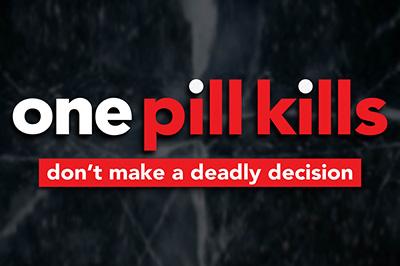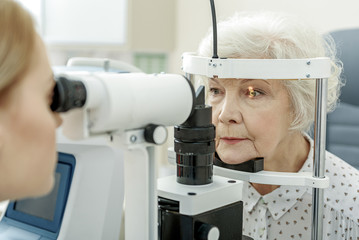
Gene Mutation May Explain Why Some Don't Catch COVID-19
People who contract COVID-19 but never develop symptoms -- the so-called super dodgers -- may have a genetic ace up their sleeve. They're more than twice as likely as those who become symptomatic to carry a specific gene variation that helps them obliterate the virus, according to a new study led by UC San Francisco researchers.
The paper, published July, 19, 2023 in Nature, offers the first evidence that there is a genetic basis for asymptomatic SARS-CoV-2. The research helps to solve the mystery of why some people can be infected without ever getting sick from COVID-19.
The secret lies with the human leukocyte antigen (HLA), or protein markers that signal the immune system. A mutation in one of the genes coding for HLA appears to help virus-killing T cells identify SARS-CoV-2 and launch a lighting attack. The T cells of some people who carry this variant can identify the novel coronavirus, even if they have never encountered it before, thanks to its resemblance to the seasonal cold viruses they already know. The discovery points to new targets for drugs and vaccines.
"If you have an army that's able to recognize the enemy early, that's a huge advantage," explained the study's lead researcher, Jill Hollenbach, PhD, MPH, professor of neurology, as well as epidemiology and biostatistics, and a member of the Weill Institute for Neurosciences at UCSF. "It's like having soldiers that are prepared for battle and already know what to look for, and that these are the bad guys."
The mutation -- HLA-B*15:01 -- is quite common, carried by about 10% of the study's population. It doesn't prevent the virus from infecting cells but, rather, prevents people from developing any symptoms. That includes a runny nose or even a barely noticeable sore throat.
UCSF researchers found that 20% of people in the study who remained asymptomatic after infection carried at least one copy of the HLA-B*15:01 variant, compared to 9% of those who reported symptoms. Those who carried two copies of the variant were far more likely -- more than eight times -- to avoid feeling sick.
Leveraging a national marrow donor database
Researchers suspected early on that HLA was involved, and fortunately a national registry existed that contained the data they were looking for. The National Marrow Donor Program/Be The Match, the largest registry of HLA-typed volunteer donors in the U.S., matches donors with people who need bone marrow transplants.
But they still needed to know how the donors fared against COVID-19. So, they turned to a mobile app developed at UCSF, called the COVID-19 Citizen Science Study. They recruited nearly 30,000 people who were also in the bone marrow registry and tracked through the first year of the pandemic. At that time, vaccines were not yet available, and many people were undergoing routine COVID testing for work or whenever they were potentially exposed.
"We did not set out to study genetics, but we were thrilled to see this result come from our multidisciplinary collaboration with Dr. Hollenbach and the National Marrow Donor Program," said Mark Pletcher, MD, MPH, a professor of epidemiology and biostatistics at UCSF.
The primary study group was limited to those who self-identified as white because the final set of study respondents did not have enough people in it from other ethnic and racial groups to analyze.
Researchers identified 1,428 unvaccinated donors who tested positive between February 2020 and the end of April 2021, before the vaccines were widely available and when it still took many days to get back test results.
Of these, 136 individuals remained asymptomatic for at least two weeks before and after testing positive. Only one of the HLA variants -- HLA-B*15:01 -- had a strong association with asymptomatic COVID-19 infection, and this was reproduced in two independent cohorts. Risk factors for severe COVID-19, like being older, overweight and having chronic diseases like diabetes did not appear to play a role in who remained asymptomatic.
"We are proud to partner on research that has the potential to leverage a long-term public investment in building the national registry to help cure diseases and improve our ability to avoid future pandemics," said Martin Maiers, vice president of research at the National Marrow Donor Program/Be The Match.
To figure out how HLA-B15 managed to quash the virus, Hollenbach's team collaborated with researchers from La Trobe University in Australia. They homed in on the concept of T-cell memory, which is how the immune system remembers previous infections.
The researchers looked at T cells from people who carried HLA-B15 but had never been exposed to the SARS-CoV-2 virus, and found these cells still responded to a part of the novel coronavirus called the NQK-Q8 peptide. They concluded that exposure to some seasonal coronaviruses, which have a very similar peptide, called NQK-A8, enabled T cells in these individuals to quickly recognize SARS-CoV-2 and mount a faster, more effective immune response.
"By studying their immune response, this might enable us to identify new ways of promoting immune protection against SARS-CoV-2 that could be used in future development of vaccine or drugs," said Stephanie Gras, a professor and laboratory head at La Trobe University.
Original article from Science Daily.
------------------------------------------------------------------------------------------------
For those of you interested in learning more about, COVID-19 Pedagogy authors Maureen Sullivan & Pamela Clark have written the several courses:
- COVID-19: A Healthcare Pandemic
- COVID-19: A Healthcare Pandemic for Post Acute Care
- The Use of Monoclonal Antibodies Against COVID-19
Pedagogy's courses are available for purchase by the individual or facility. For individuals, register with us to create your username and password, click on the course title of interest and then click the Purchase button. For a complete listing of all our online continuing education courses, including the largest selection of infusion continuing education courses offered online, click here!
For organizations that would like to purchase education for their entire staff, email sales@pedagogyeducation.com and let us know the course(s) of interest and how many staff members you need to provide education for, and we will be happy to send you a price quote.

